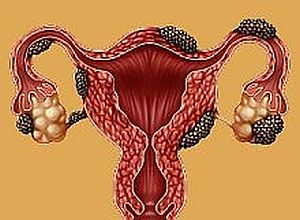A widely criticised peer-reviewed study that measured the attractiveness of women with endometriosis has been retracted from the medical journal Fertility and Sterility. The Guardian reports that the study was first published in 2013 and has been defended by the authors and the journal in the intervening years despite heavy criticism from doctors, other researchers and people with endometriosis for its ethical concerns and dubious justifications, with one advocate calling the study “heart-breaking” and “disgusting”.
The study’s conclusion was: “Women with rectovaginal endometriosis were judged to be more attractive than those in the two control groups. Moreover, they had a leaner silhouette, larger breasts, and an earlier coitarche.” Coitarche is the age at first sexual intercourse.
The women taking in part in the study had not given their consent to be judged for their attractiveness and did not know this was happening as part of their medical consultations. The study received ethics approval and was publicly funded by the University of Milan School of Medicine. The authors asked the women about their sexual history and measured their body mass index, waist-to-hip ratio and breast-to-under-breast ratio. Only “Caucasian” women were selected for inclusion in the study.
Authors have defended the study, saying that knowing if certain phenotypes – or bodily characteristics – were more susceptible to severe endometriosis would be useful. The lead researcher, Dr Paolo Vercellini, an obstetrician and gynaecologist at Universita degli Studi in Milan and past president of the World Endometriosis Society, said: “Several researchers believe that a general phenotype exists which is associated with the disease.”
But critics, including American gynaecologist Dr Jennifer Gunter, have pointed out that while characteristics such as body mass index may be relevant to endometriosis severity, this is not what the study actually measured. She wrote at the time: “I fail to understand how a small group of Italian doctors rating attractiveness of women with different stages of endometriosis contributes anything to medical science.
The journal did not issue an apology but published a letter from the authors requesting the article be withdrawn.
Dr Rebecca Szabo, an Australian obstetrician and gynaecologist and academic at the University of Melbourne, has been campaigning for an apology for this study for seven years. She told the Guardian she was “shocked” it had been retracted after the journal had defended it for so long but worried that by retracting it, the lessons from it would be lost.
“This non-apology, this retraction, seven years after many people had written to … (the authors and editors), with no comments from the editor, I think is cowardly.”
Dr Kate Young, a public health researcher at Queensland University of Technology whose previous work has focused endometriosis, has been instrumental in bringing this study to the public’s attention. She said it was an example of studies that get published but do not actually help women and other people with the condition.
[link url="https://www.theguardian.com/society/2020/aug/05/disgusting-study-rating-attractiveness-of-women-with-endometriosis-retracted-by-medical-journal"]Full report in The Guardian[/link]
[link url="https://www.fertstertdialog.com/posts/8288-attractiveness-of-women-with-rectovaginal-endometriosis-a-case-control-study"]Authors’ letter[/link]
[link url="https://www.fertstertdialog.com/posts/8288-attractiveness-of-women-with-rectovaginal-endometriosis-a-case-control-study"]Fertility and Sterility study[/link]

